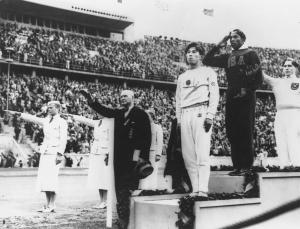“When I shop, the world gets better, and the world is better, but then it's not, and I need to do it again.”
—From the Movie ‘Confessions of a Shopaholic’
On a scale of 1 to 10, how much do you relate to that quote? Before continuing on reading the article, I want you to reflect on your shopping habits. Are you living paycheck to paycheck to fill your gigantic closet or to collect whatever you’re hooked on? If that’s so, have you ever felt that void you get when your room is getting full with stuff you bought, but your mind feels empty? Yes. I’m referring to the feeling that you have when you buy something new, but then a craving for more new stuff emerges again. That craving doesn't go away after buying another new thing. It just makes you keep wanting something else. There’s a simple, yet ironic solution to these endless cravings: getting rid of your belongings. Ridiculous? Keep reading.
If you are familiar with art terms, you might have heard about the word minimalism. Put simply, it is one of the art trends that seeks simplicity. Lately, minimalists, who apply the concept of minimalism into their lifestyles have started to appear. Their way of living is quite similar to the art term itself. Their main purpose is to live less burdening lives through intentionally owning less stuff, or by living with only the essentials. Then why would this seemingly ascetic1 way of living get popular nowadays, where excessive consumption is more common than ever?
On the surface, it may seem like there aren’t many benefits for pursuing a minimalistic lifestyle. Will saving money or helping the planet by consuming less be the only advantages of being a minimalist? Fortunately, it is not. There are more profound gains that we can get from it. For instance, living with fewer things will give us a sense of freedom. Let’s think about us always hesitating when getting ready to dress. “There’s nothing to wear in this closet!”, if you’re like me, you might have thought like this while looking at a drawer full of clothes. The funny thing is that we hesitate not because we literally have nothing to wear, but because we have way too many choices to choose from. Having an excessive amount of selection just adds to our confusion. How about our houses overflowing with needless furniture and clutter? They always become just another thing to clean at the end of the day. More cleaning means more work, and more work takes away our free time, which will eventually even weaken our productivity.
Minimalism also gives us a chance to look on our lives in retrospect. In the process of getting rid of clutter, we will get to know the things that actually matter to us.
4 Common Misconceptions about Minimalists
1. Minimalists live in a state of constant deprivation.
àNo. Minimalism is not about throwing away everything we own. It is about decluttering and leaving only essential things that we really need.
2. Minimalists are frugal2. They only buy and live with cheap, low-quality items.
àNo. You don’t necessarily have to only purchase inexpensive stuff to be a minimalist. Some minimalists choose to own smaller amounts of higher quality goods.
3. You have to be single to be a minimalist.
àNo. There are a huge number of minimalists who are living with their kids, partners and roommates.
4. Minimalists are just going through a ‘phase’.
àNo. People who had seen positive results from living as minimalists choose to keep living that way.
If you’re intrigued, why don’t you try it out for yourself? Here are 3 basic steps to becoming a beginner-level minimalist.
1. Write in your diary about the reasons why you want to start a minimalistic life. Is it to stop wasting money? Or is it because you’re tired of tidying up your messy room? Whatever it is, make sure to write them down as they will play a major role later. Furthermore, in the diary, include the things that matter to you the most. That way, it will become easier to classify the important stuff and the unnecessary ones.
2. It is now time to get busy. Look around your house and search for the things that you don’t use often. The problem is that it may be very hard to tell which things are necessary and which things are not, especially if you are the type of person that feels overwhelmingly attached to things easily. If that’s the case, see if you have duplicates of one item. For example, if you have 3 pairs of earphones, leave your favorite ones and throw out the other two. If that strategy is still not enough, I will recommend the 90day rule, which has been suggested by two of the vanguards3 of a minimalistic lifestyle, Joshua Millburn and Ryan Nicodemus. The rule is simple: Ask yourself if you had used that stuff in 90 days. If you hadn’t, ask yourself again if you’re going to use them in the upcoming 90 days. If you answered “no” to both of these questions, you should say goodbye to that thing. Remember: BE HONEST WITH YOURSELF AND THESE QUESTONS! Anything you leave behind will probably be left behind forever.
3. In your diary, write at least one grateful event that happened each day. Do not hesitate to include minor details, such as feeling good from wearing a freshly laundered shirt that smells just wonderful. Keeping a record of these kinds of trivial events will make you realize it is not only the big, crucial events that make you happy but also a compilation of small, mildly pleasant memories. Moreover, whenever you want to give up on your journey of minimalism, reread what you have written in step 1. It will be a driving force that makes you keep going.
There are some people who have gone a step further into the minimalistic lifestyles. Radical, or extreme minimalists(whichever you want to call them) even choose to live in tiny houses that are less than 30 square meters, which is equivalent to about 9 pyeong in Korean width unit. Also, there are nomadic minimalists, who expand the minimalistic theme into travelling. With only a backpack that carries a jacket, a few shirts, a passport, a pair of sweaters and jeans with a few pairs of underwear, they travel internationally for sometimes more than a year.
The writer of this article was, in fact, a maximalist. For the purpose of bringing comfortableness into a room, I had 3 sofas placed in my room. To be “healthy and energized”, I used to buy lots of nutritional supplements monthly, that ended up with me barely even touching them. But then, while searching for the information about minimalism to write this piece, I came to think that it might actually help my life become light and easy. I myself had made plans to declutter based on the 3 steps above, and that included re-locating one of my sofas to the living room and giving my extra supplements to my family. The result was quite impressive. I felt as if my room was more spacious and larger than ever before, and the way of my life has become more convenient, so to speak. I guess I’m proud to say that I moved away from a hopeless maximalist to a beginning minimalist.
1ascetic — practicing strict self-denial as a measure of personal discipline
2frugal — people who don’t spend much money on themselves
3vanguard — the forefront in any movement
Kim Junhwan dogedoggo@naver.com
<저작권자 © 홍익대영자신문사, 무단 전재 및 재배포 금지>





